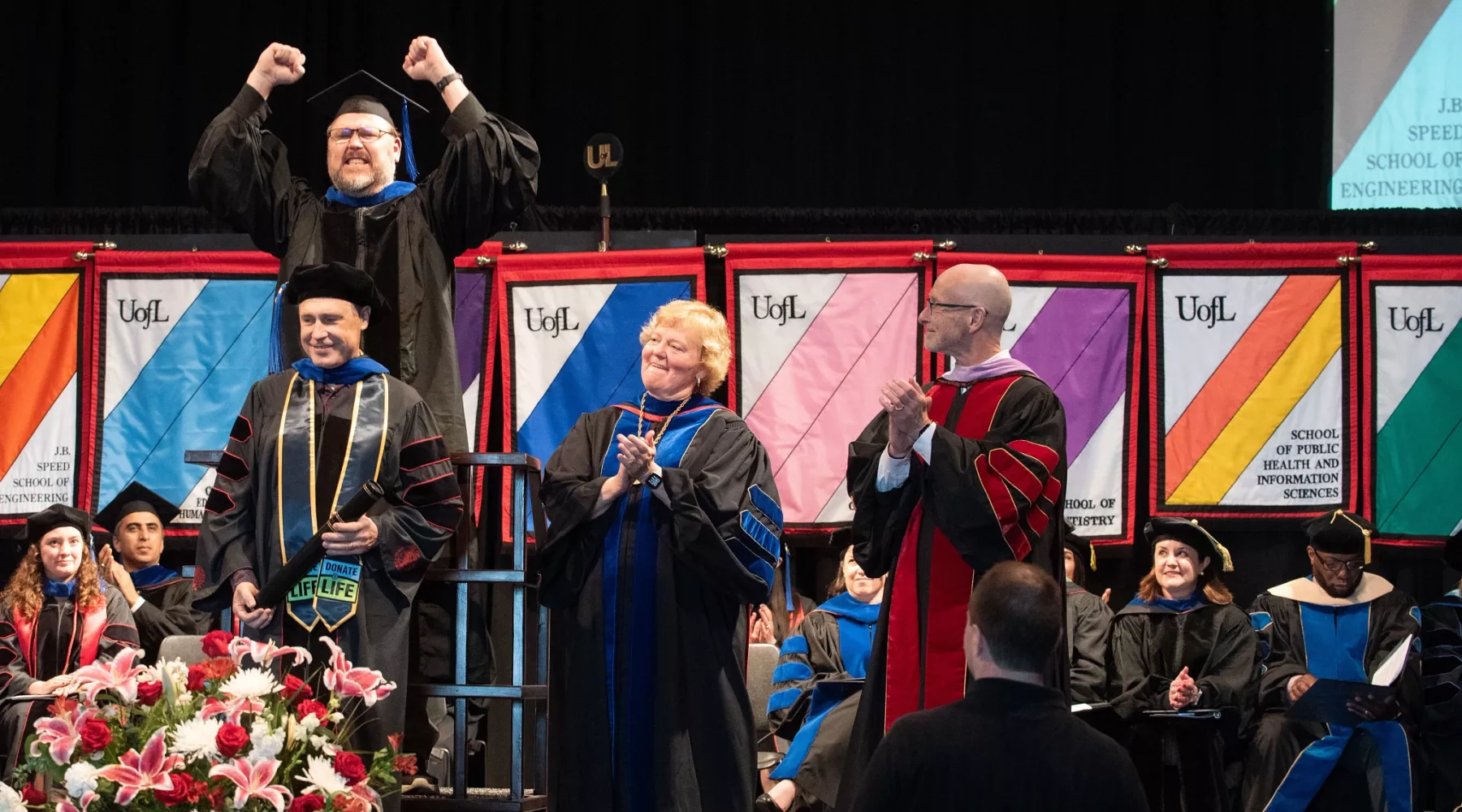
Milestones for Graduate Students
Discover key milestones, connect with advisors and map out your path to academic success.
Sidebar
Graduate programs are designed with key milestones to guide students' academic progress and aid in goal-setting and self-assessment. These milestones typically include many of the following: coursework, comprehensive/qualifying exams, candidacy, research proposals, internships/practicums, and either a thesis, dissertation defense, portfolio, or capstone project.
Milestone specifics, including additional requirements, may vary by degree and department. Graduate students should maintain regular communication with their graduate advisor or mentor and keep them informed of their progress.
1
Coursework
Graduate students must complete their program’s required courses and electives. Discussing their course plan with their mentor during their program helps keep them on track.
2
Comprehensive/Qualifying Exams
Many programs require doctoral students to show mastery of content through comprehensive exams, which may be oral, written or both. Exam formats and timing vary by program, but for PhD/EdD students, these exams typically occur between finishing coursework and before the dissertation proposal.
3
Candidacy
Upon completing all coursework and co-curricular obligations, except for the final project, thesis, or dissertation, graduate students achieve the status of "degree candidate" and enter "candidacy." During this period, candidates concentrate exclusively on their research projects and do not take additional coursework. Funded graduate assistants must obtain permission from the Graduate School before enrolling in any courses during candidacy.
The statuses of "Master’s Candidacy" and "Doctoral Candidacy" allow students to maintain registration and access university resources, including libraries, laboratories, and faculty support, while working on their thesis, dissertation or capstone project. Continuous enrollment in either master’s or doctoral candidacy is required throughout the academic year (Fall, Spring, and Summer) until the degree is completed. Doctoral candidacy is granted only after passing comprehensive/qualifying exams, and candidates are considered full-time while enrolled in candidacy.
4
Research Proposal
Primarily completed by students working toward their doctorate, students will develop, explain, and defend a research proposal. The proposal may include preliminary results from the student's research and describe possible future directions of their dissertation. Specifics of the proposal varies by degree program.
5
Internship/Practicum
Internships and Practicums are typically taken toward the end of a graduate student’s program, offering hands-on experience which bridges the gap between theory and practice. These experiences give students networking experience, enhance skill development, and provide practical application. Length, location and responsibilities vary by degree program.
6
Thesis/Dissertation/Portfolio/Capstone
Each program requires graduates to provide different ways to showcase their mastery: PhD/EdD students submit dissertations, while some EdD students require a Capstone Project, DNP/DSW/AuD programs require Capstone, some Master's students submit theses, and others may submit a final paper or a portfolio. A Portfolio could include essays, book or literature reviews, surveys, lab reports, internship reflections, a paper showcasing knowledge learned throughout their program, etc.
Graduate students should look to their advisor/mentor/DGS for support, guidance, and clarification. They should be sure to pay attention to deadlines related to format checks and final copy submissions.
7
Application for Degree
Graduate students are required to apply for their degree in the semester in which they plan to receive their degree. This is required for doctoral, master’s and certificate students.
